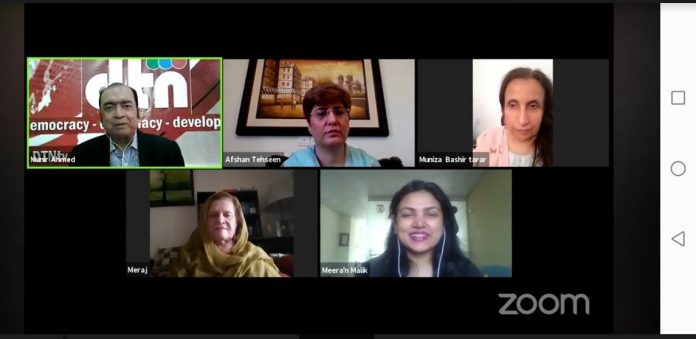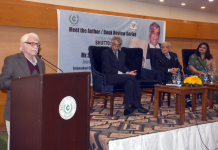ISLAMABAD, NOV 14 (DNA) – Devcom-Pakistan Executive Director Munir Ahmed said the parents in our society have proved to be very rigid towards their daughters. All the teachings of our religion and the awareness campaigns could not bring the change we required to prioritize the social, mental and physical growth of our daughters
Islamabad – The experts speaking at a webinar urged the parents to focus more on mental, social and physical healthy growth of their girls. Prioritizing girls in the family-life would make them equally mature, nurtured and responsible citizens. Physical protection is the major challenge facing the minor and teenage girls to avoid physical and sexual abuse.
Talking about the social taboos, they said the early marriages deprive the girls of their education, healthy physical and social growth. The teen mothers are more prone to weaker health, pregnancy complications and maternal deaths.
The webinar on the role of healthy and educated girls for a prosperous society was organized by the Development Communications Network (Devcom-Pakistan) and DTN on Saturday. The panelist included chairperson National Commission on the Rights of Children (NCRC) Afshan Tehseen Bajwa, Devcom-Pakistan Executive Director Munir Ahmed, former parliamentarian from Khyber Pakhtunkhwa Miraj Humayun, consultant with an Asian Development Bank (ADB) project Muniza Tarar, and educationist and social activist Meeran Malik.
The NCRC chairperson Afshan Tehseen Bajwa said girls are the children of a lesser god in our society despite our religion has given much more rights to them. We need to change our social behaviours towards our daughters. They need to have equal opportunities of education, health, food and nutrition and social protection.
Once it would be fully functional, she said the NCRC would play a pivotal role to ensure their physical protection of their rights according to the religion, national and international commitments. Despite no funds and facilities, we are still putting our efforts to highlight the crimes against children especially girls and consistently follow-up the cases of rape, physical abuse and other sort of victimization.
Devcom-Pakistan Executive Director Munir Ahmed said the parents in our society have proved to be very rigid towards their daughters. All the teachings of our religion and the awareness campaigns could not bring the change we required to prioritize the social, mental and physical growth of our daughters. Pakistan Demographic and Health Survey (2017-18) has revealed that 37 per cent of the girls were married by the age of 18 while 8 per cent got married when they were 15 years old. Around 70 percent of the girls lacked adequate nutrition. The pregnancy complications and maternal deaths were far less in the girls married at the age of 25-29.
Munir Ahmed said more girl-child focused parenthood and public funding would help improve the health and wellbeing indicators of the SDG-3, and quality education (SDG-4) and gender equality (SDG-5) and decent work and economic growth (SDG-8). Girls’ education is crosscutting to all the SDGs. Educating the girl child helps in the improvement of a good life, improved health as they bring an awareness of the importance of hygiene and health. Through education, they can lead a healthy lifestyle. The women that are educated can care for their children better.
Former parliamentarian from Khyber Pakhtunkhwa Miraj Humayun said the situation in KP was much embarrassing as the girls’ education, health and social growths deteriorated over the years. Population and poverty index both are rising in the province unchecked. Parents do not have sufficient resources to feed and educate their children despite knowing the benefits.
Consultant with an Asian Development Bank (ADB) project Muniza Tarar said all the researches show that Pakistan is a patriarchal society where men are the primary authority figures and women are subordinate. Gender is one of the organizing principles of Pakistani society where women lack social value and status because of negation of their roles as producers and providers in all social roles.
The educationist and social activist Meeran Malik said girls are more prone to health and social challenges in the rural areas where most of the population lives. The families have less resources and even meagre resources for their children. Girls come after the boys when it is to educate them and provide health and social protection. =DNA
=================

















